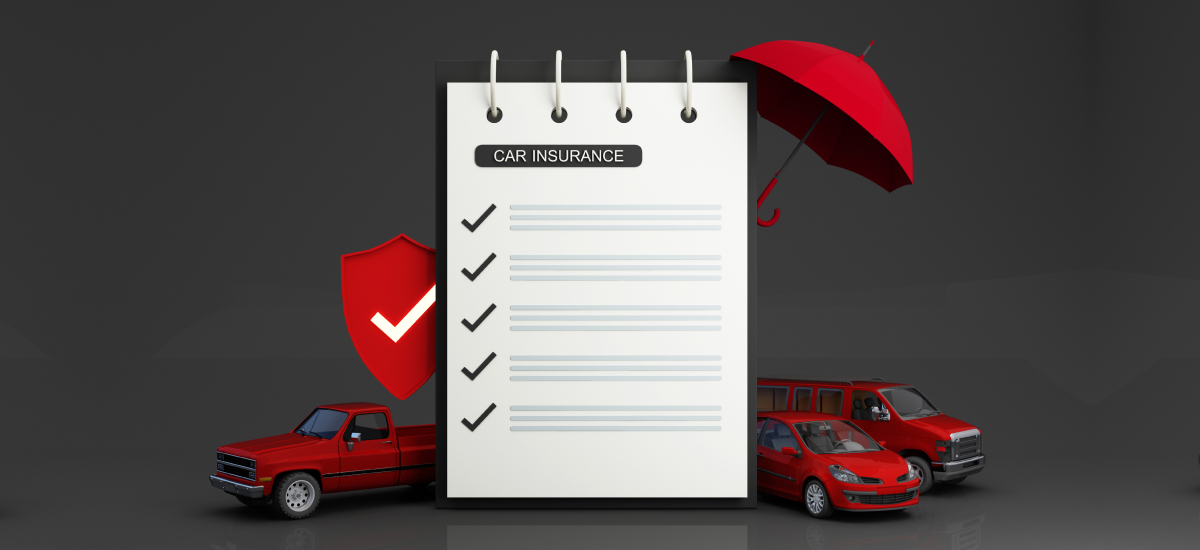Navigating the varied aspects of income tax filing can be daunting. It can prompt you to seek the expertise of professionals with a finer understanding of tax exemptions and the overall filing process. However, uncovering additional benefits becomes crucial for those who prefer to undertake the task independently.
One such advantage worth exploring is the tax exemption on car insurance premiums. This article looks at the various facets of car insurance and tax exemptions. Understanding that car insurance is tax deductible can prove valuable if you want to optimise your financial strategies while ensuring compliance with tax regulations.
Conditions To Claim Tax Benefits On Your Car Insurance Policy
“Can I claim car insurance on tax?” is a common query among all vehicle owners. To qualify for tax benefits on your car insurance policy, here are some conditions you must meet, primarily when you use the vehicle for commercial purposes.
- Exclusive business purpose
The employer is crucial in substantiating this claim if you use the car exclusively for business-related activities. To get tax exemption on car insurance premiums, the employer must provide detailed documentation, including invoices and driving records.
- Business and personal needs
In cases where the vehicle serves business and personal needs, the tax exemption depends on the vehicle's cubic capacity. Dual-purpose usage mandates careful evaluation to determine the proportion of the applicable tax benefit. It offers a comprehensive approach to car insurance tax exemption.
Can Self-employed Individuals Get Tax Benefits On Car Insurance?
Self-employed individuals using their cars for business face increased exposure to potential damages. It can increase costs associated with commercial car insurance. When self-employed professionals use their personal vehicles for business-related activities, they bear the substantial risk of potential car damage.
Consequently, self-employed professionals find themselves obligated to pay increased insurance premiums. After recognising this financial burden, the tax code acknowledges the need for support in such situations. Hence, self-employed individuals are eligible for a tax exemption on car insurance. They get financial relief that helps mitigate the additional costs due to the heightened vulnerability of their vehicles in business-related activities.
Steps To Get A Tax Deduction On Car Insurance
Securing a tax deduction on car insurance involves the following steps.
- Auditing of records
If a company's annual revenue surpasses Rs. 1 crore, the initial step is to have the records audited by a chartered accountant. Subsequently, you need to complete the tax filing process.
- Claim
During the income tax filing, you can substantiate your claim for tax deductions by including the car insurance premium invoice and supporting documentation.
- Refund process
Once the Income Tax Department has verified and approved the provided documents and is satisfied with the legitimate use of the car, they will initiate the refund process.
Essential Documents To Submit For Tax Exemption
You must submit the following documents to claim tax benefits on your car insurance policy.
- Invoice copy (original)
This document details the vehicle purchase and is essential for establishing ownership.
- Registration fee copy
Submitting this copy verifies the legitimacy of the vehicle's ownership and registration.
- Car insurance policy invoice
It outlines the terms and coverage of your car insurance.
- Repairs and maintenance records
Maintaining these records offers insights into the car's upkeep, supporting your car insurance tax benefits claims.
- Fuel bills
Providing proof of fuel expenses further strengthens your case for claiming car insurance on tax.
Are Car Insurance Tax Deductible For Claims?
One query that arises among taxpayers is, vehicle insurance tax deductible? The short answer is “No”. The fundamental principle governing car insurance policies is indemnity, wherein the insurer covers expenses related to repairs or loss of the insured vehicle for specific reasons. As a claim represents a reimbursement for a loss rather than a financial gain, the received amount does not belong to the taxable income category.
Understanding the finer aspects of tax exemption on car insurance policies is necessary to manage income tax filing. Remember that car insurance is necessary to safeguard against unforeseen events and get potential tax benefits. These insights will help you plan your taxes better, irrespective of whether you self-file or seek professional assistance.
When optimising your financial strategies, you can leverage the opportunities presented by car insurance tax exemptions. It will ensure compliance with regulations while maximising potential savings. Ultimately, staying informed will help you make better decisions.
Frequently Asked Questions (FAQs)
1. Can we get tax exemption on car insurance?
Tax advantages associated with car insurance are exclusively applicable when you use the vehicle for business purposes. Personal use of the car does not qualify for tax benefits.
2. What are the advantages of buying a comprehensive car insurance plan?
Opting for comprehensive car insurance helps cover third-party accident expenses, take care of repairs for accident damage, and safeguard against natural and man-made calamities.
3. What are the different types of car insurance?
The types include third-party, comprehensive, and standalone or own-damage car insurance.






























